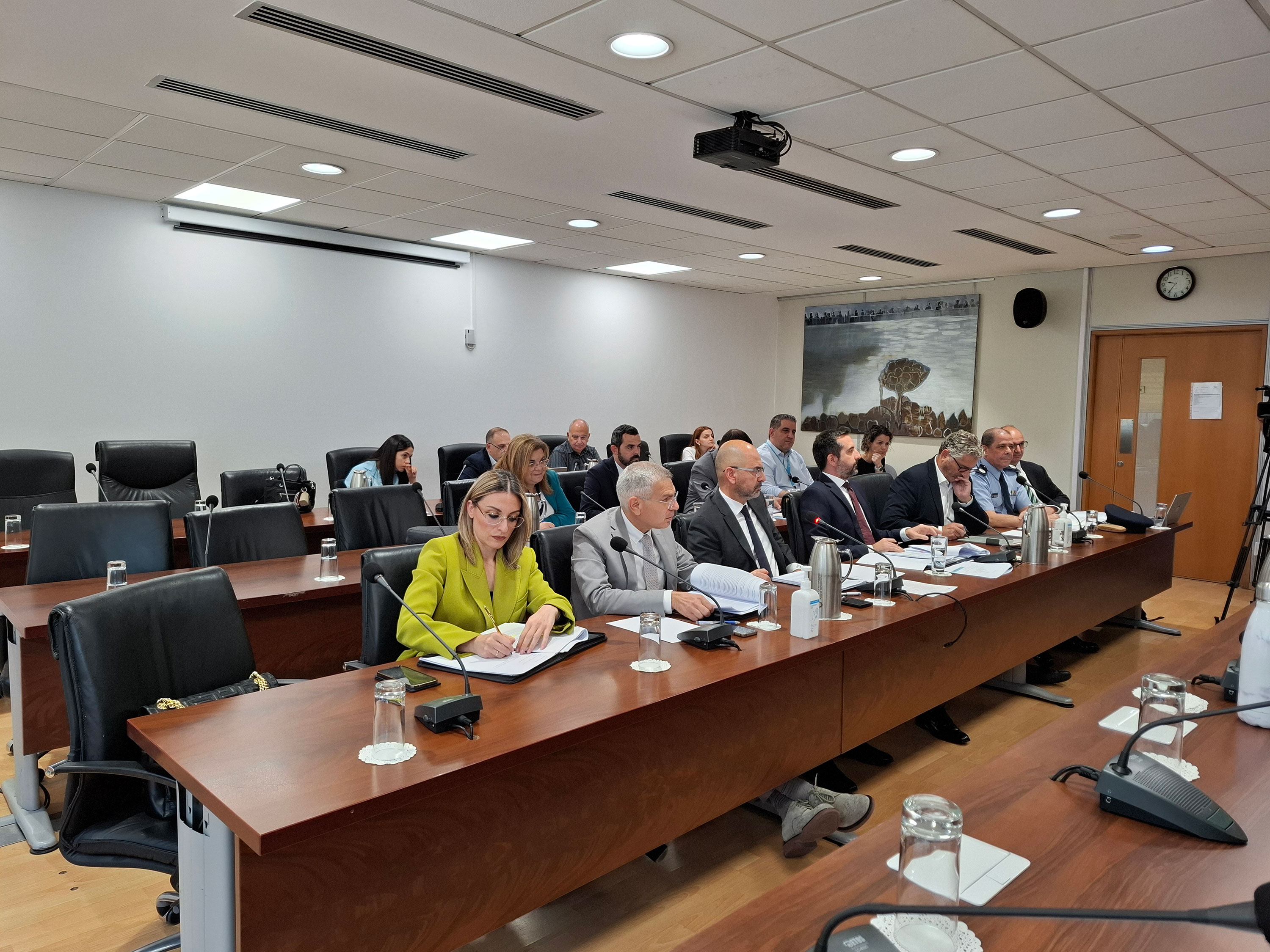The Cypriot government spent €500 million on the management of immigration over the space of four years between 2021 and 2024, Auditor-general Andreas Papaconstantinou said on Thursday.
Addressing the House audit committee, he explained that a third of that figure – €166m – was sourced from European Union funds.
He also touched on the matter of asylum applications, telling the committee that between 2021 and 2023, around 41,000 such applications were filed in Cyprus.
Around 78 per cent of those applicants, he said, arrived in Cyprus via the north, with the remaining 22 per cent arriving by sea.
He added that 32 per cent of them were Syrian nationals, 13 per cent were Nigerian nationals, another 13 per cent were Congolese nationals, and the remaining 42 per cent came from other countries.
Additionally, he said, around 15,000 irregular migrants left Cyprus during the same period, with 76 per cent of them voluntarily returning to their country of origin and 24 per cent being deported.
He added that at present, around 19,000 asylum applications are pending.
Migration Deputy Minister Nicholas Ioannides also spoke at the meeting, saying his deputy ministry is “on alert”, and that “in the event of a mass influx of migrants, we will request the assistance of the EU”.
He was also keen to point out that the number of migrants arriving in Cyprus decreased by 65 per cent between 2021 and 2024.
Committee chairman and Diko MP Zacharias Koulias expressed his satisfaction with the government’s direction, saying, “when there is political will, things change”, and adding that the matter of migration is “changing the course of our history”.
He also said Turkey is “exploiting the problem”, given the proportion of asylum applicants who arrived in Cyprus via the north.
Turkey’s role in Cyprus’ migration issue was also stressed by Ioannides when asked by Akel MP Irene Charalambides about the incident last year which saw a number of asylum seekers trapped in the island’s buffer zone.
“We emphasised the role of Turkey in allowing these people to travel through its territory and arrive by ships and planes in the occupied territories, where the smugglers picjed then up and sent them here, creating this issue,” Ioannides said.
“We did not consider these people a threat, we simply had to send the message to traffickers and to Turkey that the Republic of Cyprus will not tolerate their being used as tools.”
Papaconstantinou’s report on migration had earlier raised concerns regarding the whereabouts of around 290,000 third-country nationals, including around 180,000 British nationals, who arrived legally in Cyprus between 2014 and 2023 but have no recorded departure from the island despite their visas having since expired.
Additionally, large numbers of Russian nationals, Israeli nationals, United States nationals, Ukrainian nationals and Australian nationals are all also reported to have been recorded arriving on the island but not having been legally recorded departing.
The report added that of a sample of 250 such cases submitted to the Audit Office by the police, only 52 were “justified”, with the passport holders being either dual Cypriot nationals, legal residents of Cyprus, or holders of more than one passport, or having been recorded travelling to the north via a crossing point and not having since returned.
Of the remaining 198 cases – 79 per cent of the sample – it is believed that they are residing in the Republic of Cyprus without having applied for residence permits.
While left out from the report, it is likely that a sizeable proportion of that number will have left the island in some way without being recorded, as has been known to happen at crossing points, ports, and airports during busy times.
Migrant returns are said to be an important component of the criteria for the potential future ratification of Cyprus as a member of Europe’s Schengen zone, one of the key goals the government has set itself this year.
President Nikos Christodoulides had said earlier in the month that Cyprus will join the Schengen zone as early as next year.
“We will join the Schengen zone in 2026. A huge effort is being made by the end of 2025 from a technical point of view. This is our goal, we will have completed everything we need to do as a state, with the aim of 2026, precisely, for the Republic of Cyprus to join the Schengen zone,” he said.
In total, 10,098 irregular migrants returned from Cyprus to their country of origin during 2024, according to the police, with European Commission President Ursula von der Leyen saying the country has “made good progress” on the matter during a visit to Paphos last October.
Her words echoed those of former European Commission vice president for promoting the European way of life Margaritis Schinas, who had last year described Cyprus as an “emerging European champion of migrant returns”.
Cyprus is one of just two EU member states left outside the Schengen zone, following the accession of Bulgaria and Romania at the beginning of this year. Cyprus aside, Ireland is the only EU member outside the Schengen zone. Four non-EU members – Iceland, Liechtenstein, Norway, and Switzerland – are also Schengen members.
Should all the technical requirements be fulfilled, the final step towards joining the Schengen zone will be a final evaluation and political approval.
The European Commission will undertake a final assessment of Cyprus’ suitability, with accession requiring unanimous approval by all the Schengen zone’s current 29 member states.







Click here to change your cookie preferences